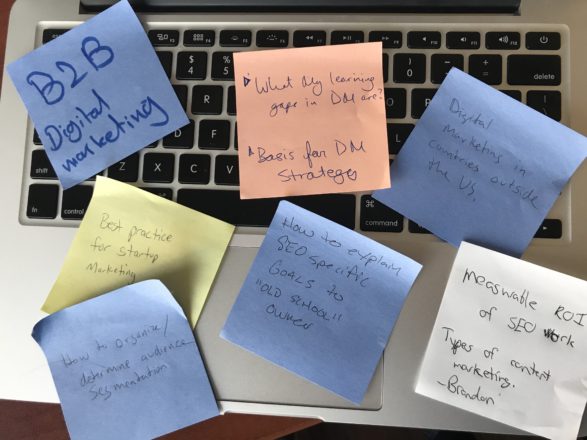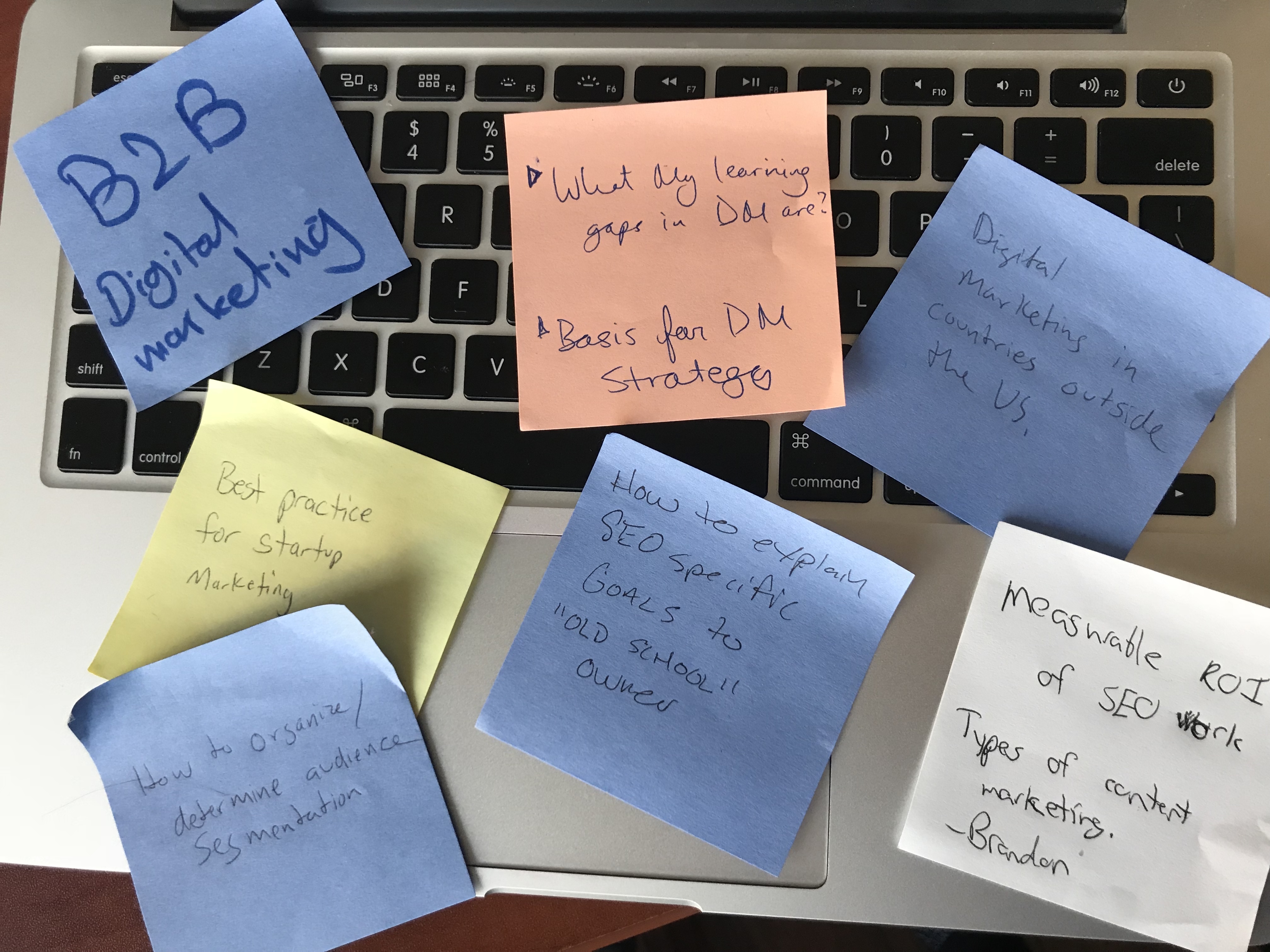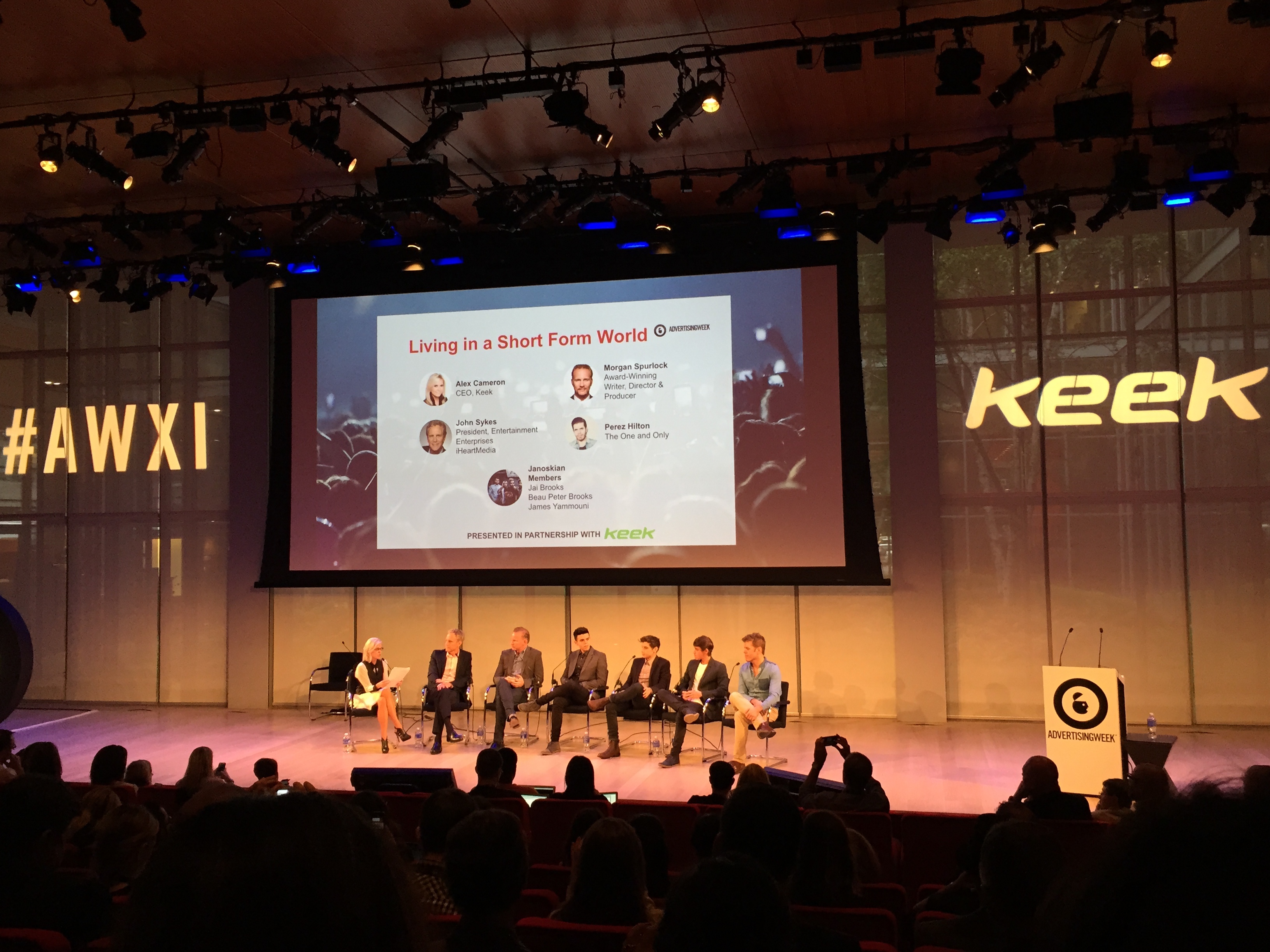This week, I had the privilege of teaching an Intro to Digital Marketing class at General Assembly Chicago, a training facility and coworking space network of 20 global campuses! It’s an awesome way to connect with professionals in your field or a field you’re looking to expand into! And, there are so many ways to learn – panels, workshops, bootcamps, part-time, and full-time courses – in topics like Data Science, Web Development, Digital Marketing, Product Management, and UX Design. The Intro to Digital Marketing class is a course available with regular frequency, but this was my first time teaching a group of 18 professionals looking to learn about how to expand into a new channel, explore career paths, and soak up knowledge – for two full hours after a full day of work for most. The thirst for knowledge and career growth was palpable and I was honored to have the opportunity to try to fill in some gaps and bring up new ideas for the class.
It was fascinating to learn about the burning digital marketing questions on attendees’ minds, so I thought I’d share some of them (see their post-it notes in the photo below), and my corresponding answers. Let’s keep the conversation going! Post your digital marketing questions in the comments of this post so we can have a dialogue about the state of the industry and where it’s headed!

What Qualifies Me to Speak About Digital Marketing?
For over a decade, my career has zeroed in on one digital marketing channel at a time, beginning with GovTech, then Social Media/PR when I founded a small business marketing consultancy at the age of 26, followed by over 2 years at an SEO/Content Marketing agency, then on to consulting at Salesforce on best in class email marketing strategies, and now, tying it all together with cross-channel and customer journey strategy. I’ve worked with small businesses, start-ups, non-profits, as well as global companies and have developed marketing strategies for organizations across industries, including media, government, higher education, financial services, and high tech. I’ve also shared best practices through writing, and speaking for audiences at BlogHer, Loyola University, DePaul University, Goldman Sachs 10,000 Small Businesses, and Salesforce World Tour in Chicago. (Full Portfolio) This well-rounded experience equips me to share thoughts on marketing challenges and hopefully open up inspiring conversations about where the industry is headed!
Class Q&A
- Can we talk about B2B Digital Marketing?
- With B2B marketing, you can focus on collaborations with other businesses, including development of content marketing pieces. Then, when you share your content across channels, you’ll have help to source your message and expand your audience from one to more than one. In addition, consider different end-users or consumers of your B2B marketing. For example, if you are marketing a technology that helps grocery store employees who work the registers at checkout, you’ll want to understand how to adjust your messaging for the end users, but your purchasers could be a very different audience whom you’ll also need to craft messaging for. Social marketing for B2B can be more challenging as it can be difficult to target social ads to the right people who are associated with a business than a consumer who has explicit interests and behaviors that enable more targeted, relevant ads.
- What is a basis for a Digital Marketing strategy?
- There are several ways to define a digital marketing strategy. Two of them are
- 1) A business sets a goal such as launching a new product in the coming year. The digital strategy will support this launch so this goal must be top of mind.
- 2) You run campaigns and interact with customers across touchpoint (including in store), and gather data to determine trends, customer segments, buying patterns, or opportunities for growth.
- How do you organize or determine audience segmentation?
- Speaking of question #2 above regarding data-driven segmentation , customer purchase, brand interaction, or direct feedback data can help cluster customers with like behaviors to identify campaign strategies that are relevant to these groups. eMarketer reports that 50% of survey respondents use data for segmentation for better targeting and engagement (Global Alliance of Data-Driven Marketing Associations – 2015 and Winterberry Group). For example, if a retail store uses customer loyalty profile data to determine that male customers purchase mens clothing products year round – except for during Mother’s Day or Valentine’s Day, you could group customers who likely have a female in their life to purchase gifts for, specifically around holidays or special occasions. This creates an opportunity to upsell these customers at other times during the year. You might also consider segmenting your audience based on your product portfolio. For example, a mobile device company may group customers into those who have never used a tablet, customers who own the full product suite and are early adopter brand loyalists (they’ll buy anything you make), or families who have multiple and some repeat devices.
- How do you explain SEO specific goals to an “old school” business owner? (The students were candid!)
- Search engine indexing and rankings take time. Focus on making sure your website structure is consistent with SEO best practices (like making sure pages have descriptions and descriptive titles, and photos have alt-text describing what they are). Then, focus on developing engaging content that your audience will connect with – this will lead to you being seen as a credible source and as a results, you may see companies linking to your site, content, or brand, which also indicates to search engines that you’re producing relevant content for the topics you’re an expert in, which means you’re helping your audience, and will appear in relevant results. Tangible metrics you can look at to ensure your SEO is strong, include count and quality of referring sources to your website, and checking rankings of sub-pages and blog posts that dive into specific topics. The more general your content is, the more competition there is to rank in the top spots of the first page in search results. Keep creating content, building relationships, and tracking your traffic!
- What are some best practices for startup marketing?
- Startups may have limited resources for robust marketing strategies. But, luckily, anyone can create content these days – for free! Start with sharing photos (snap them on your iPhone), stories, interviews about your company, its employees, and how your company’s products and services are unique. Set up an email list and send emails out consistently and regularly to stay in touch with your loyal customers – the cost is usually nominal until your list grows exponentially. Share progress as your startup grows and offer to collaborate, speak, and demo your product or service at community events, customer blogs, newsletters, and even newspapers. This is a time to contribute instead of try to absorb attention – get the word out about your company wherever you can, and you’ll begin to find the best outlets to reach your most interested customers – then, they can help you create and share content, and it will snowball from there!
Have your own digital marketing questions? Post them in the comments and let’s have a conversation about the industry!
Here are some example question starters that might help:
- What do you think about X digital marketing trend?
- Where have you seen successful social marketing?
- What’s an exciting example of relevant digital marketing you’ve come across?
- What about the future of marketing?
- What are the top digital marketing trends you’re seeing for the upcoming year?











One thought on “Ask Me Anything: Digital Marketing Q & A”
Featuring Rebecca Leder: Chicago Strategist & Influencer | Lipstick & Ink April 16, 2018 at 5:30 am
[…] teach periodically, and free panel sessions and paid workshops on topics like Personal Branding and Digital Marketing – check it out! I also subscribe to email newsletters from leading companies in the field, […]